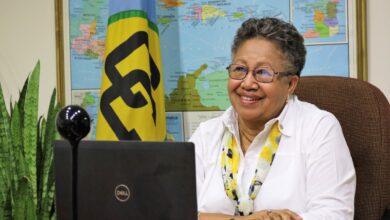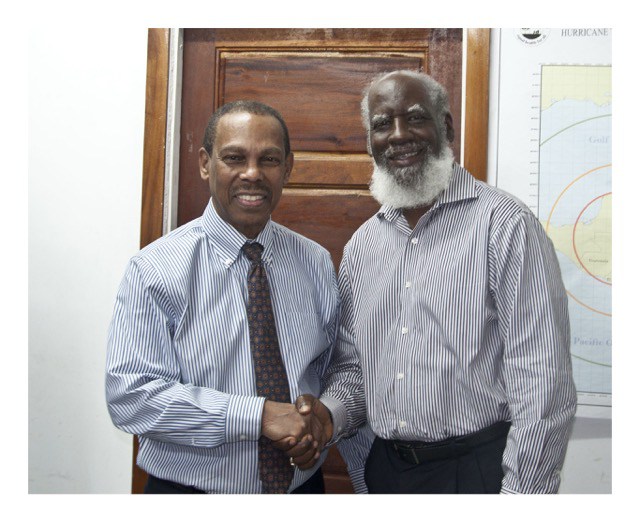(CARICOM Secretariat, Turkeyen, Greater Georgetown, Guyana) The Second Caribbean Wellness Day was launched on Thursday September 3, 2009 at the headquarters of the Caribbean Community (CARICOM) Secretariat, Georgetown, Guyana, with several countries indicating their preparedness for the September 12 observance, under the theme: Love that Body.
The observance of Caribbean Wellness Day on the second Saturday in September was one of 15 actionable decisions made by CARICOM Heads of Government at the Regional Summit on Non-Communicable Diseases (NCDs) in Port-of-Spain, Trinidad and Tobago on 15 September 2007. The Summit was convened to address the social and economic burdens of chronic NCDs on the Region. Those decisions formed the basis of the Declaration of Port-of-Spain on NCDs.
At the official launch, Dr. Edward Greene, CARICOM Secretariat’s Assistant Secretary-General, Human and Social Development, said that the implications of unabated Non Communicable Diseases (NCDs) were far reaching, touching facets of regional economies, health and social sectors.
Against this backdrop, he said that the implementation of the actionable recommendations for the prevention of NCDs outlined in the Declaration of Port-of Spain was of critical importance to reducing the incidence of NCDs in the Region.
Dr. Greene said that the main emphasis of the activities leading up to Wellness Day was to inculcate the values of wellness to begin what he described as a “wellness revolution.”
In this regard, he called for collaboration in ensuring that the strategies towards wellness were adopted throughout the Caribbean region. Dr. Greene stated that there was also need for “a sustainable set of programmes” that would see everyday being a wellness day.
The Assistant Secretary-General lauded the efforts of the Pan American Health Organisation for its support in promoting programmes and activities in conjunction with the CARICOM Secretariat for the observance of Caribbean Wellness Day. He also commended the work of Ministries of Health across the Region for the national strategies they had employed to encourage a culture of wellness.
“We have a responsibility to take responsibility for our good health,” he said.
He urged the regional gathering, via video confrence to “be conscious of the refrain of the Nassau Declaration of 2001 that the Health of the Region is the Wealth of the Region.”
Also speaking at the launch, Dr. Alafia Samuels, Consultant on Chronic Disease Prevention Control within CARICOM, emphasised the continuity and sustainability of Caribbean Wellness Day, noting that it was a day to “stimulate ongoing activities for ongoing wellness in the Region.”
Emphasising the critical importance of activities to encourage a culture of health and wellness, Dr. Samuels said that the statistics showed that the Caribbean carried the heaviest burden of disability and death from NCDs in the Americas. She added that several countries had three to six times the mortality on diabetes comparable with the United States.
Notwithstanding that, Dr. Samuels stated, “the good news is” there was wide knowledge within the Region about how to prevent certain diseases, including heart and circulatory diseases and certain types of cancers.
What was required, she reiterated, was a “wellness revolution” in which everyday is a wellness day.
Dr. Samuels added that there was need for the creation of supportive environments to allow citizens to” make the right choice, the easy choice.”
“We need more healthy fast food options. We need vegetarian dishes in school and workplace cafeterias, with no deep fat fried anything. We need safe lighted pathways to walk, and even better if we have a little music or a dance instructor to do the “Electric Slide”. If you are having fun, you will keep doing it, and that is the key to success,” she concluded.
During the ceremony, The Bahamas, Saint Lucia and Trinidad and Tobago reported on the successes of sustained programmes they had developed since 2008, to promote health and wellness in schools, communities and work places.





